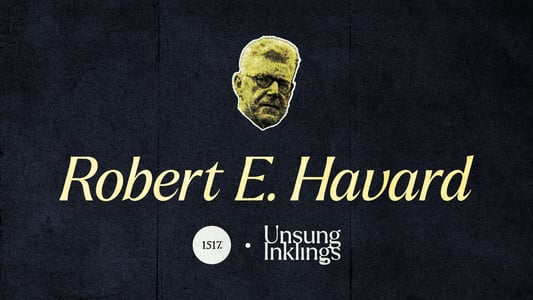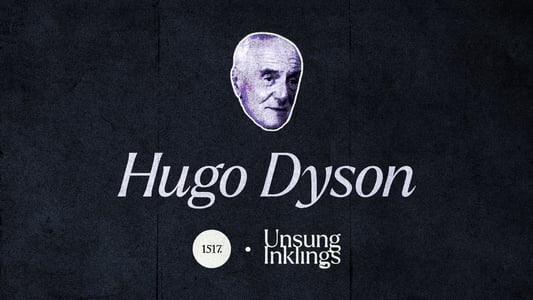Even at Lewis’ graveside, Havard was a faithful friend, and a friend full of faith in Christ, confessing his hope in the resurrection.
Author
- All Authors
- 1517 Publishing
- 1517 Staff
- A. A. Just Jr.
- Adam Francisco
- Amy Mantravadi
- Andrew Foss
- Blake Flattley
- Bob Hiller
- Bob Sundquist
- Bonnie Petroschuk
- Brad Soenksen
- Bradley Gray
- Brandon Hanson
- Brandon Pangman
- Brennan Manning
- Brian W. Thomas
- Bror Erickson
- Bruce Hillman
- C.S. Lewis
- Caleb Keith
- Chad Bird
- Charles E. Fry
- Cindy Koch
- Craig Donofrio
- Dan Chrismer
- Dan van Voorhis
- Dan Weber
- Daniel Deen
- Daniel Emery Price
- Daniel Stenberg
- David Clay
- David Rufner
- David Schmitt
- Delwyn Campbell
- Dominick Santore
- Donavon Riley
- Edward Killian
- Elyse Fitzpatrick
- Erick Sorensen
- Gage Jordan
- Gerhard Forde
- Grant Klembara
- Gretchen Ronnevik
- Haroldo Camacho
- Hermann Sasse
- Jacob Corzine
- Jake Allstaedt
- Jared C. Wilson
- Jason Lane
- Jason Lang
- Jason Oakland
- Jay Sawrie
- Jeff Mallinson
- Jeffrey Pulse
- Jenifer Mohan
- Jessica Delgado
- Jessica Thompson
- Jim Nestingen
- Joel Fitzpatrick
- Joel Hess
- John Bombaro
- John Bortulin
- John Chrysostom
- John T. Pless
- John W. Hoyum
- John Warwick Montgomery
- Jonathan Ruehs
- Jordan Spina
- Joshua Miller
- Justin Rossow
- Karen Stenberg
- Kathy Morales
- Katie Koplin
- Kelsi Klembara
- Ken Sundet Jones
- Kerri Tom
- Kevin Hale
- Kevin McClain
- Kyle G. Jones
- Larry D. Hughes
- Laura Bauer
- Luke Kjolhaug
- Magnus Persson
- Mariah Coward
- Mark Jasa
- Mark Mattes
- Mark Pierson
- Martin Luther
- Matt Johnson
- Matt Kroelinger
- Matt Popovits
- Michael Berg
- Michael Gibney
- Nicholas Hopman
- Nicholas Kallis
- Norman Nagel
- Paul Dunk
- Paul Koch
- Pete Lange
- Peter Nafzger
- Philip Bartelt
- Preston Sprinkle
- Raleigh Sadler
- Rick Ritchie
- RJ Grunewald
- Robert Farrar Capon
- Robert Kolb
- Rod Rosenbladt
- Roland Ehlke
- Ron Hodel
- Ryan Cosgrove
- Ryan Couch
- Ryan Tinetti
- Sam Leanza Ortiz
- Sam P. Schuldheisz
- Sarah Crowder
- Scott Davis
- Scott Keith
- Scott Landrum
- Seth Moorman
- Steve Byrnes
- Steve Kruschel
- Steven A. Hein
- Steven Paulson
- StoryMakers NYC
- Tanner Olson
- Tate Barber
- Ted Rosenbladt
- Travis Scholl
- Tyler Cronkright
- Uwe Siemon-Netto
- Valerie Thur
- Wade Johnston
- Walter Hwang
- Wayne Sender
- Zack James Cole
-
Charles V, for all his power, his lands, and his riches, was ultimately unable to hinder the spread of the precious Gospel.
-
Dyson demonstrated a pious persistence with Lewis, something we can emulate in our own friendships and conversations.
-
The Lord assures Jeremiah he has not forgotten him. He is there and will rescue him.
-
The Lord has remembered to help his servant Israel, to fulfill his promises to Abraham and to his offspring forever, not mostly or mainly because of his mercy, but exclusively so.
-
We have to “remember” that God remembers us. He has not fallen away. For God to remember us means he is working for our good; a restoration.
-
When God remembers his covenant with Noah and causes the flood to subside, he also chooses to forget.
-
This week, we’ll take a closer look at what it means to have a God who remembers us. Today, 1517 Scholar in Residence Chad Bird first introduces the Old Testament meaning behind the word and the Hebrew way of remembering.
-
The issue is not the existence of so-called inner rings, but our desire and willingness to spend our lives in order to gain from an inner ring what is freely promised in Christ: hope, security, and identity.
-
Jesus’s story in Luke 16 draws definitive attention to whom God helps — namely, God always comes close in order to help those who cannot help themselves.
-
Jesus weeps because his heart pulses with furious rage and fierce love.
-
Christ shows up in the middle of our storms and our nightmares. That’s where he sets up shop.

%2c_formerly_attributed_to_Titian_(Alte_Pinakothek%2c_Munich)-2.jpeg?width=690&height=300&name=Portrait_of_Charles_V%2c_Holy_Roman_Emperor%2c_seated_(1500%E2%80%931558)%2c_formerly_attributed_to_Titian_(Alte_Pinakothek%2c_Munich)-2.jpeg)













